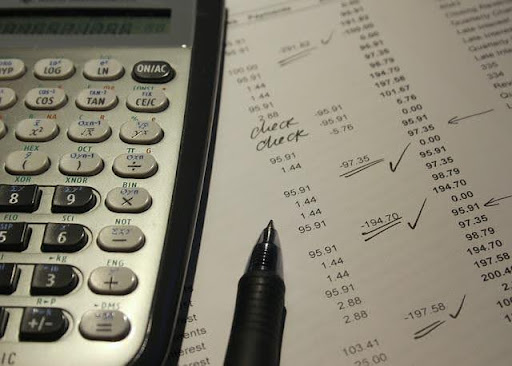What are the Duties and Responsibilities of Bookkeeper?

Contents
Having accurate financial information about your business allows you to manage cash flow well, get the best interest rates, and choose the right supplier prices. That’s where a bookkeeper comes in. The bookkeeper duties and responsibilities involve processing financial information that leaders use to make important decisions. They can report on a weekly, monthly, or even quarterly basis.
The duties of bookkeeping include being knowledgeable and experienced in handling different aspects of business. That means bookkeepers duties and responsibilities should be clear and well-defined. Here are some general bookkeeping duties.
Bookkeeper Duties and Responsibilities for Recording Transactions
One of the main functions of a bookkeeper is recording, editing, and tracking a company's purchases, sales, and payroll information. Bookkeeper roles and responsibilities also include keeping accurate records, they need to update working files like QuickBooks or Excel and share them with other users automatically.
Other full charge bookkeeper duties are sharing these important files, which makes it easier for everyone to work faster. It also enables proper tracking of income and expenses and helps you understand how the business is performing so that you can make informed decisions.
Processing Payments
Other bookkeeper duties and responsibilities involve processing payments like invoices so bookkeepers can track unpaid invoices and record paid ones. They also verify bookkeeping tasks like:
- Date the invoice was created
- Contact information on the invoice for the supplier and purchaser.
- The prices of products and services.
- Payment information.
Preparing Bank Reconciliations
Daily banking activities like bank reconciliation are part of bookkeeper duties and responsibilities that require high levels of accuracy, which is one of the important skills of a bookkeeper. This is because professionals use bank reconciliation to check the accuracy of figures in specific records. Any small error can cause confusion and financial losses.
According to a bookkeeper definition, any qualified bookkeeper ensures a bank account statement matches other relevant records and that any issues are fixed on time to avoid any costly mistakes. To make such changes electronically, you can use accounting software that locks shared documents to protect the changes you make before other users can view or alter them.
It's a bookkeeper job role to ensure accuracy in such sensitive bank activities and the right tools make full charge bookkeeper duties easier.
Processing Financial Reports

It's one of the important bookkeeper duties and responsibilities to process some financial reports like cash flow statements, balance sheets, and profit and loss statements. These reports show the expenses, assets, and liabilities of a business, and accountants analyze them to make important business decisions.
Other bookkeeper duties and responsibilities include preparing inventory and financial reports that provide insights into a company's financial position. They count stock items and report any issues to their superiors so that they can make a decision. The quickest way to share such Excel-based reports is through multi-user software during bookkeeping, meaning it's simple and efficient.
Help Prepare Tax Information
Accounting bookkeeper duties include assisting in preparing taxes and ensuring all the information in the documents is accurate. The bookkeepers also help identify deductions and stay compliant with government regulations, which help avoid penalties. They also ensure books are accurate and on time, so you'll always stay compliant. That's why a bookkeeper job qualifications must include timeliness.
Organized Record Keeping and Reporting to Investors
Some basic bookkeeping duties include keeping organized records so that it's easy to quickly retrieve what you need and when you need it. Having organized records saves time and reduces the stress associated with searching for lost documents.
A qualified bookkeeper properly organized records also enables businesses to report their financial situation to investors without wasting time. Investors want to know if your business is making profits before investing in it, so they need to get accurate information fast.
Bookkeeper Job Qualifications and Skills
A bookkeeper job role requires formal education like a bachelor's degree in a finance-related field like accounting. A CPA and bookkeeping experience is also an added advantage. Proficiency in math will make performing your duties a lot easier.
To give you an edge in this field so you can perform the bookkeeper duties and responsibilities well, you need to have specific skills. The bookkeeper position description requires skills like:
Having an Eye for Details
Having an eye for detail is one of the most important skills for a bookkeeper. Depending on the bookkeeper roles and responsibilities, the job mostly requires looking at large sets of data and quickly identifying inconsistencies which is one of the important accounting bookkeeper duties.
The ability to pay attention to details ensures you can spot errors and ensure records and reports are consistent and accurate.
Deadline Oriented
An important part of bookkeeper duties and responsibilities is the ability to keep deadlines. Bookkeepers perform many duties and responsibilities that are time-sensitive, including reconciling monthly bank accounts, filing quarterly tax returns, and helping in the preparation of yearly reports which are general accounting duties.
These reports should be timely for fast decision-making. Avoids missing deadlines, so there are no consequences like penalties.
Ability to Communicate Clearly
Bookkeepers work with complex data that they sometimes need to communicate to people who work in other fields. Basic bookkeeping duties include communicating such complex information in a clear way, which enables them to prepare and clearly present budgets, payrolls, or tax reports to managers for decision-making.
Other functions of a bookkeeper involve knowing how to communicate information like balance sheets or income statements to investors who want to understand the financial position of a business. It's part of a bookkeeper's duties and responsibilities to clearly talk about assets, liabilities, and equity.
Organizational Skills
A bookkeeper job role involves dealing with long-term and short-term projects that require them to have exceptional organizational skills. These skills allow you to plan and prioritize tasks so that you can save time, meet deadlines, and work efficiently.
Having great organizational skills also enables bookkeepers to use an all-in-one efficient tool to systematically maintain financial records so that they are easier to retrieve.
Customer Service Skills
Bookkeeper duties and responsibilities involve interacting with a wide range of professionals across different industries. These professionals include clients, vendors, and colleagues.
Having excellent customer service skills means you'll attract and retain new clients who will be loyal to your company and bring in consistent income. For example, consistently providing bookkeeping services is great customer service that attracts more customers.
Payroll Accounting
Bookkeepers also handle payrolls as part of their bookkeeper duties and responsibilities. They ensure the accounts are current and comply with government regulations.
Having payroll accounting skills makes it easier for bookkeepers to handle payments efficiently, especially if they are using the right tools.
It’s imperative to select the right accounting software to help manage your workflow. Get an all-in-one practice management, refreshingly simple software for accountants that's affordable and will help manage your payments. You can try Basil Practice Management for accountants and tax for free here.
FAQS
What does a bookkeeper do?
From a bookkeeper definition the bookkeeper duties and responsibilities is to perform duties of bookkeeping, like recording and maintaining the financial transactions of a business. These are sales, invoices, purchases, and expenses. Bookkeepers maintain payrolls, process payments, prepare tax information, and organize records.
What are the duties of a bookkeeper?
Full charge bookkeeper duties include:
- Processing various financial transactions.
- Processing payments
- Processing different financial reports
- Assist in preparing tax information.
- Organizing record keeping and reporting to investors.
Do you need a bookkeeper if you're using account software?
Yes. Accounting software such as Basil practice management offers an all-in-one solution that's a refreshingly simple software for accountants to manage their business. It has features like a client portal, CRM, and task workflow, and it collects many signatures. The accounting software is a tool to help accountants to efficiently manage your business.
What are the legal steps to hire an employee like a bookkeeper? Hiring a bookkeeper will help improve your business. Here are the steps you can follow:
- Research and understand your duties as an employer.
- Register as an employer to get important information like your PIN number and business number.
- Write down the bookkeeper roles and responsibilities clearly and bookkeeping meaning. Include the skillsets you want them to have. Also, include the bookkeeper educational qualifications.
- Publish your advertisement so that you can start receiving the job applications.
- Start the recruitment process by selecting and sorting the applications.
- Next, select the best candidate and conduct an interview.
- Once you've selected the best candidate, onboard them and set expectations while providing support. Train the new bookkeeper using the bookkeeping software.
- Add the new bookkeeper to the payroll and go through the payment process.
- Perform an employee evaluation to know if all employees are on the right path.